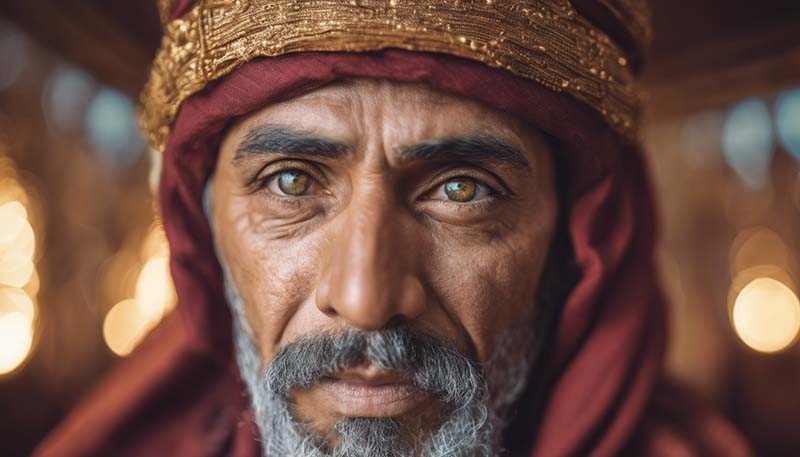Ibn Battuta: The Muslim Traveler of the 14th Century
Ibn Battuta: The Muslim Traveler of the 14th Century
Introduction
Ibn Battuta, one of the most famous Muslim travelers of the 14th century, embarked on a remarkable journey that spanned over three decades and covered more than 75,000 miles. His travels took him across continents, from North Africa to the Far East, and provided a unique perspective on the diverse cultures and civilizations he encountered. This article delves into the life, travels, and contributions of Ibn Battuta, exploring his motivations, experiences, and the legacy he left behind.
Early Life and Background
Ibn Battuta was born in 1304 in Tangier, Morocco, into a Berber family. His family was well-respected and held a prominent position in the local community. From a young age, Ibn Battuta was fascinated by the stories of exploration and adventure that he heard from his father and other travelers. This curiosity and thirst for knowledge would later drive him to embark on his own journeys.
In 1325, at the age of 21, Ibn Battuta set out on his first journey, which would eventually lead him to become one of the most well-traveled individuals of his time. His initial motivation for traveling was to perform the Hajj, the Islamic pilgrimage to Mecca, which all Muslims are required to undertake at least once in their lifetime if they are physically and financially able.
Advertisement
Travels and Experiences
Ibn Battuta\'s travels can be divided into several distinct phases, each characterized by the regions he visited and the experiences he had.
1. The Hajj and the Middle East (1325-1332)
Ibn Battuta\'s first journey took him across North Africa, through Egypt, and into the Arabian Peninsula to perform the Hajj. After completing this religious obligation, he continued to explore the Middle East, visiting places such as Iraq, Iran, and the Levant. He documented his observations of the local customs, cultures, and political landscapes, providing valuable insights into the region at the time.
2. The Indian Subcontinent (1332-1342)
Ibn Battuta\'s travels then took him eastward to the Indian Subcontinent, where he spent a significant amount of time. He arrived in Delhi and was warmly welcomed by the Sultan Muhammad bin Tughlaq, who appointed him as a judge. During his stay in India, Ibn Battuta traveled extensively throughout the region, visiting cities such as Lahore, Multan, and Calcutta. He also ventured into the southern part of the subcontinent, exploring the kingdoms of the Vijayanagara Empire.
3. Southeast Asia and China (1342-1346)
Ibn Battuta\'s journey continued as he traveled to Southeast Asia, visiting countries such as Malaysia, Indonesia, and the Philippines. He then made his way to China, where he was granted an audience with the Emperor. His observations of the Chinese political system, culture, and society provided a unique perspective on this powerful and influential civilization.
4. The Return Journey and Africa (1346-1354)
Ibn Battuta\'s return journey took him back through the Middle East and North Africa, where he visited cities such as Tunis, Cairo, and Alexandria. He also traveled to sub-Saharan Africa, exploring regions such as modern-day Nigeria and Mali. His experiences in these areas provided valuable insights into the diverse cultures and societies of Africa.
5. Final Years and Legacy (1354-1369)
After returning to Morocco, Ibn Battuta spent the final years of his life in relative obscurity. He began to compile his travel accounts, which were eventually transcribed by his secretary, Ibn Juzayy. These accounts, known as the \"Rihla\" (The Journey), provide a detailed and comprehensive record of his travels and observations.
Contributions and Legacy
Ibn Battuta\'s travels and writings have had a profound impact on the study of history, geography, and anthropology. His observations of the various cultures and civilizations he encountered have provided invaluable insights into the social, political, and economic conditions of the 14th century. Some of his most significant contributions include:

1. Cultural Exchange
Ibn Battuta\'s travels facilitated the exchange of ideas, knowledge, and cultural practices between different regions. His accounts provide a unique perspective on the interactions between various societies and the ways in which they influenced one another.
2. Historical Record
Ibn Battuta\'s detailed descriptions of the places he visited serve as a valuable historical record, offering insights into the political, social, and economic conditions of the time. His accounts have been used by historians and scholars to better understand the history of the regions he visited.
3. Geographical Knowledge
Ibn Battuta\'s travels expanded the geographical knowledge of his time, providing information on previously unknown or poorly understood regions. His descriptions of the cities, landscapes, and natural features he encountered have contributed to our understanding of the geography of the 14th century.
4. Anthropological Insights
Ibn Battuta\'s observations of the customs, traditions, and practices of the people he encountered have provided anthropologists with valuable insights into the diverse cultures and societies of the 14th century.
5. Inspiration for Future Travelers
Ibn Battuta\'s journeys have inspired countless travelers and explorers, demonstrating the potential for personal growth and discovery through travel. His legacy continues to inspire people to explore the world and seek out new experiences and knowledge.
Conclusion
Ibn Battuta\'s remarkable journey and the detailed accounts of his travels provide a unique and invaluable perspective on the world of the 14th century. His observations of the diverse cultures and civilizations he encountered have enriched our understanding of history, geography, and anthropology. As one of the most well-traveled individuals of his time, Ibn Battuta\'s legacy continues to inspire and inform, reminding us of the importance of exploration, curiosity, and the pursuit of knowledge.